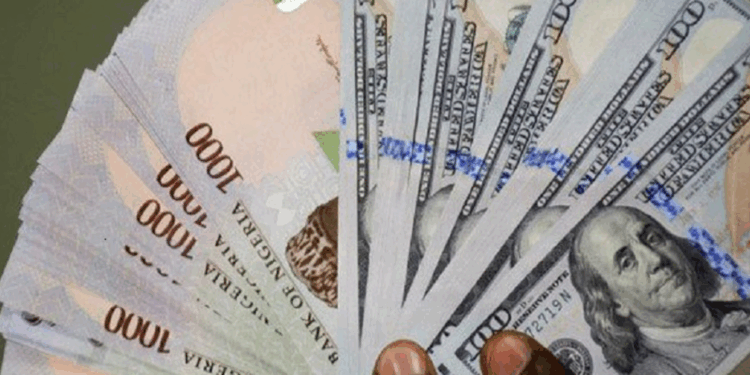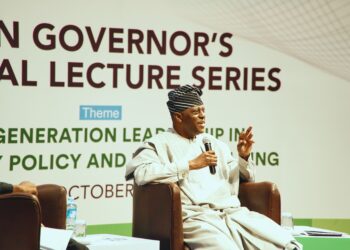The Nigerian naira strengthened further in the parallel market on Monday, appreciating to N1,527/$1, its highest level in over a month.
This represents an improvement from Friday’s closing rate of N1,530.96/$1, according to data tracked by Nairametrics.
This marks the naira’s best performance since July 25, 2025, when it settled at N1,520/$1, based on Nairametrics data.
A review of trading patterns from the previous week follows the trend: the naira closed at N1,539/$1 on Monday, September 1, maintained the same level on Tuesday, September 2, eased slightly to N1,538/$1 on Wednesday, September 3, gained further to N1,535/$1 on Thursday, September 4, and strengthened again to N1,530.96/$1 on Friday, September 5.
The upward momentum carried into the new week, resulting in Monday’s N1,527/$1, which it currently trades at.
In the official market, there was no data available for Friday, September 5, due to the public holiday.
However, figures released by the Central Bank of Nigeria (CBN) show that the naira also posted improvements earlier in the week.
It traded at N1,525.45/$1 on Tuesday, September 2, strengthened further to N1,522/$1 on Wednesday, September 3, and appreciated to N1,511.5/$1 on Thursday, September 4.
The Thursday rate was one of the most favorable in recent weeks, narrowing the gap between the official and parallel market windows.
Foreign reserves hit $41.5 billion
According to data on the CBN website, Nigeria’s foreign reserves rose by 0.09% to $41.5 billion on 3 September 2025.
Essentially, FX reserve movements are particularly crucial for economic stability, currency strength, import capacity, debt management, and overall investor confidence. Changes in the reserves could signal economic stress or health.
Amid huge debt service obligations and revenue challenges, the stability in external reserves movement, coupled with a marked deceleration in inflation rate, as well as the Naira’s relative stability, offer renewed hope for the country about better days ahead.
The development further attests to the position of the central bank’s management team that monetary policy actions have so far headed in the right direction.
During the last MPC meeting in July, CBN Governor Olayemi Cardoso attested to the sustained stability in the foreign exchange market, which was accentuated by improved capital flows, earnings from increased crude oil production, rising non-oil exports, and a significant reduction in aggregate imports.
Analysts say the country’s investment outlook improved because of the unification of exchange rates and the resolution of the $7 billion foreign exchange backlog.
2027 campaigns could exert pressure on forex – experts warn
In its latest assessment, Standard Bank stated that political developments and fiscal spending ahead of the 2027 general elections could exert pressure on the naira.
According to the bank, “Electioneering activities are key factors stakeholders should consider as a likely driver of the USD/NGN pair in 2026 and 2027. Primary election activities are expected to begin in Q1:26, with campaigns for the 2027 general election expected to be in full swing from Q3:26. These activities are likely to lead to an increase in dollar demand, which, in addition to increased fiscal spending, should support an increase in money supply.”
The Bank projected that the CBN’s stronger FX reserve position should allow the apex bank to mitigate USD/NGN upside pressure.
The bank also adjusted its medium-term outlook on the Nigerian naira, projecting a 3.1% depreciation against the US dollar in 2025, but at a stronger level than previously forecast.
The bank says it expects the naira to close 2025 at N1,585.5/$1, compared to its earlier forecast of N1,697.5/$1
Also, the CEO of SPM Professionals, Dr. Paul Alaje highlighted the dangers posed by political activities in the lead-up to the 2027 general elections, warning that reckless handling of foreign exchange during campaigns could erode the fragile economic stability Nigeria is beginning to experience.






















